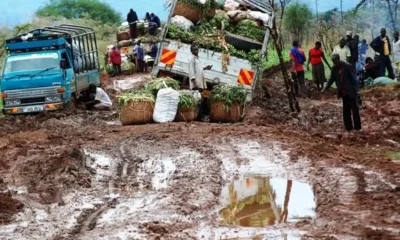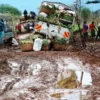Opinions
Wilfred Arinda: The Iran–Israel war and its hidden cost to Ugandans
There is a war on the horizon, one that may never reach Uganda with bombs or bullets, but will strike directly at our economy, our markets, and our daily survival. The rising tensions in the Middle East between Iran, Israel, and the United States are not just foreign affairs. If this conflict explodes into full-scale war, Uganda, like most developing countries, will feel the tremors in the most painful ways.
At the heart of the crisis is the Strait of Hormuz, a narrow waterway through which 20 per cent of the world’s oil flows. Iran has already threatened to block this strait if war breaks out. Such an act would instantly choke the global oil supply, sending prices into a tailspin. We’ve been here before, when Russia invaded Ukraine in 2022, global oil prices shot past $120 per barrel. Analysts now warn that a war in the Gulf could push prices to $150 or even $200 per barrel. For a country like Uganda, which imports over 1.6 billion litres of petroleum products annually, this would be an economic earthquake.
Uganda’s landlocked status makes us even more vulnerable. We rely heavily on fuel that comes through the port of Mombasa, Kenya. Our fuel prices are already high, with petrol hovering around UGX 5,100 per litre as of June 2025. In the event of a war in the Middle East, this could easily jump to UGX 8,000 or more. Transporters will pass on the cost to traders, who will then pass it on to consumers, and ordinary Ugandans will ultimately pay the price at the pump, in the market, and for every household item they need.
But it doesn’t stop at fuel. This kind of price shock triggers a vicious cycle. As transport costs rise, so do food prices. According to the Uganda Bureau of Statistics, over 42 per cent of a household’s income in Uganda goes to food. Imagine a 20 to 30 per cent increase in food costs driven by global instability. It’s not just inflation, it’s hunger. It’s malnutrition. It’s social unrest.
When fuel costs increase, the price of transporting maize, beans, and vegetables from farms to markets follows suit. A tanker of maize moving from Gulu to Kampala consumes about 400 litres of diesel; at UGX5000 per litre before a spike, it costs UGX2 million in fuel alone. If diesel surges to UGX8000, that cost escalates to UGX3.2 million, and an extra UGX1.2 million is passed on to consumers and farmers.
In 2022, Uganda’s inflation reached 10.7 per cent during the last global fuel crisis. If this new war materialises, we could see inflation soar to 15 per cent or higher, devastating vulnerable families. For a rural household living on UGX300000 per month, a 15 per cent inflation increase eats UGX45000, enough to drop meals from three to two per day.
This conflict will hit the entire African continent. Many African countries are net importers of fuel and food. Disruptions in the Red Sea and Suez Canal, likely if Iranian proxies like the Houthis escalate attacks, would delay deliveries of essential goods. Insurance premiums for shipping through these regions are already rising. The cost of everything from cooking oil to fertilisers will rise. Many African governments rely heavily on Western donor funding, including Uganda, which receives more than UGX 5 trillion in annual aid. If war drains the pockets of donor nations, development support to Africa may be cut or redirected to military operations and refugee crises.
Even countries that produce oil, like Nigeria or Angola, will not escape unscathed. These nations export crude but import refined fuel, so they will suffer from the same soaring prices for refined petroleum products. Moreover, a global economic slowdown triggered by war would dampen demand and investment across the continent.
The social impact could be severe. Food insecurity will rise. School fees will become unaffordable for many. The cost of transporting produce from farms to urban markets will become unbearable. And once again, as always, it will be the poorest who suffer first and most.
It would be a grave mistake for Ugandans to imagine that this conflict is distant or irrelevant. We must prepare, individually and collectively. Government must urgently prioritize fuel reserves and consider tax waivers on petroleum products. Uganda’s UNOC has already broadened import routes, using Tanzania as well as Kenya, and has built strategic reserves of over 1billion litres. Pump prices declined by 6.6? cent from mid-2024 to early 2025. But these measures are contingent; global shocks could overwhelm them. The time to rethink national budgets is now. Households must brace for higher costs, ration fuel, embrace energy-saving practices, and wherever possible, turn to backyard farming to cushion themselves from looming food price shocks.
It is also time for East African states to coordinate on regional solutions. In times of global instability, regional solidarity becomes a survival tool. We may be far from the Gulf, but we are not far from its consequences.
The writer is the LC 5 Male Youth Councillor for Rubanda District, wilfredarinda@gmail.com
Comments


























